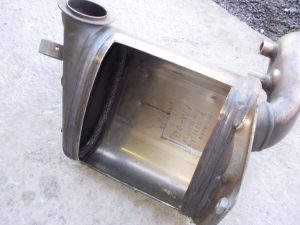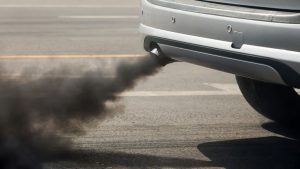Dpf Removal is it legal?
Yes, in the UK it is, and these are the penalties if you remove your DPF
Diesel particulate filters cause expensive problems, we are all aware of that, and its well documented throughout the internet with thousands of diesel car owners having expensive and in some cases, ongoing problems with the DPF systems which are fitted to their cars.
The problem is so widespread that it has even made an appearance on UK Consumer Television, as well as many motoring publications and even the AA give advice on them, and the issues don’t seem to be improving.
With such a cloud hanging over the reliability of Diesel Particulate Filters, and with many existing diesel owners worried that their DPF filters may be a financial ticking time bomb then you would probably have had more than a passing thought, about removing it altogether, and ridding yourself of the potential DPF related issues, further down the line.
You may already be reading this page, simply because you are already facing a large and expensive repair bill to replace a blocked DPF and are currently researching removing or deleting the DPF from your car. Certainly a £300 – £400 removal fee, is more attractive then a £1000+ repair bill from a dealer, and naturally many people are tempted to follow this path, of indeed have already ventured into the Automotive darkside and have done it.
However, you do risk of falling foul of the law in the UK, if you have removed the DPF on a car which left the factory with one fitted, and doing this is a breach of the “Construction and Use” section of the Road Vehicles act. Effectively making your vehicle unroadworthy.
Dpf Removal is it legal?
Removing your Diesel Particulate Filter is also likely to lead you to having a void insurance policy, which could lead to your insurer withdrawing insurance cover, if a vehicle examination as part of an insurance claim, discovers that the DPF has been removed or tampered with.
This is most likely to happen in the event of an accident which will effectively leave you uninsured with your insurer not only refusing to pay out for damage or loss to your own vehicle, but they may also choose to pursue you for their expenses in relation to paying out for damage caused to the property of another party. The police, may also choose to prosecute you for driving without insurance, which carries six penalty points and a nasty endorsement on your license which may make future insurance difficult or expensive to obtain.
This is not scaremongering or rumour but FACT. The Association of British Insurers have also been quite clear in relation to where removing a DPF from a vehicle with a factory fitted particulate filter will stand with them and their members – the Insurance companies.
“It is the responsibility of the vehicle owner to ensure that their vehicle is legal to drive and roadworthy, and to declare it as such when applying for or renewing insurance. Applying for or renewing insurance knowing that the vehicle is illegal or unroadworthy, would amount to misrepresentation and potential fraud.
Terms and conditions of motor insurance policies normally specify that the vehicle must be registered in the UK (or in the process of being registered), and that the vehicle is roadworthy. No insurance would be offered or renewed if the owner declared to the insurer that the vehicle was illegal to drive/unroadworthy.
Changes in the UK MOT rules from March 2014 also include checks on the presence of the DPF Filter, so if it has been removed then your car will fail its MOT inspection, Additional changes in the MOT rules in 2018 also now check for the physical presence of a DPF as well as a more strict smoke test.
 There are some companies who still continue to offer DPF Removal / DPF Delete services which involve opening up the DPF, knocking out the insides, rewelding and refitting, essentially leaving the original case intact and still in its original place in an attempt to fool the MOT visual check, however this is now much harder since 2018, since the vehicle is emissions tested to the limit advertised on the VIN plate.
There are some companies who still continue to offer DPF Removal / DPF Delete services which involve opening up the DPF, knocking out the insides, rewelding and refitting, essentially leaving the original case intact and still in its original place in an attempt to fool the MOT visual check, however this is now much harder since 2018, since the vehicle is emissions tested to the limit advertised on the VIN plate.
However, it is only a matter of time before the current MOT test changes once again, to include a more advance method of checking, which is already in place across parts of Europe and involves plugging a diagnostic system into the car computer during the MOT test, and physically checking that the DPF is present and working. Should the test detect a problem, then the car will fail.
So my advice is, that if you are considering removing or deleting your DPF filter from your car, then don’t because its only a matter of time before you will be faced with having no choice but to pay a dealer for a new one, and in the meantime you will be driving around in an unroadworthy vehicle using insurance which could be revoked in the event of a claim.
However, before paying the dealer a four figure sum for a brand new Diesel Particulate Filter, there may still be other cheaper options available. Please read our DPF Cleaning page for cheaper alternatives to try before replacing your DPF.

